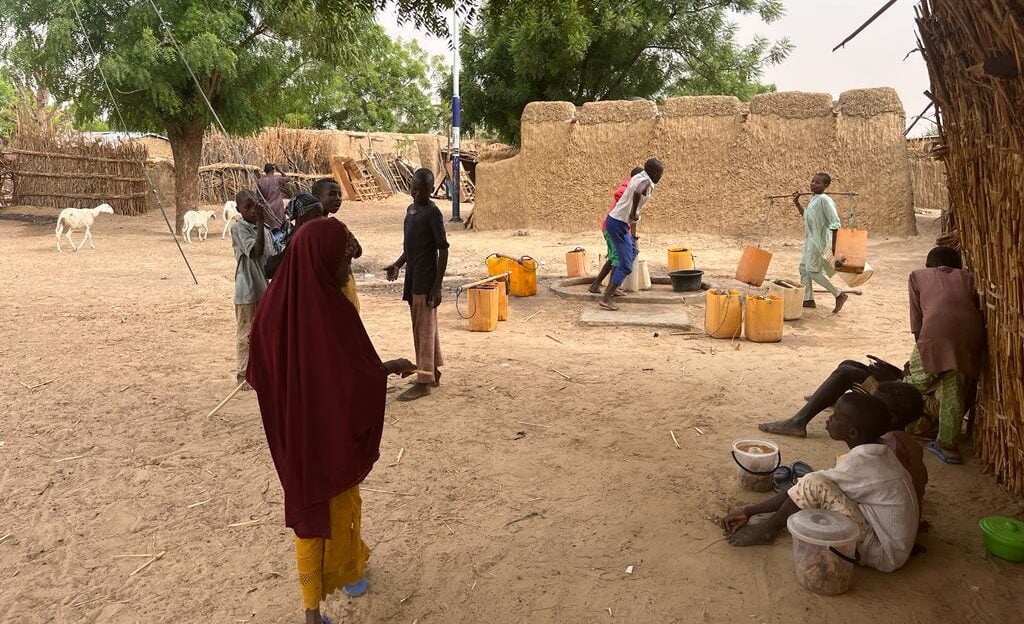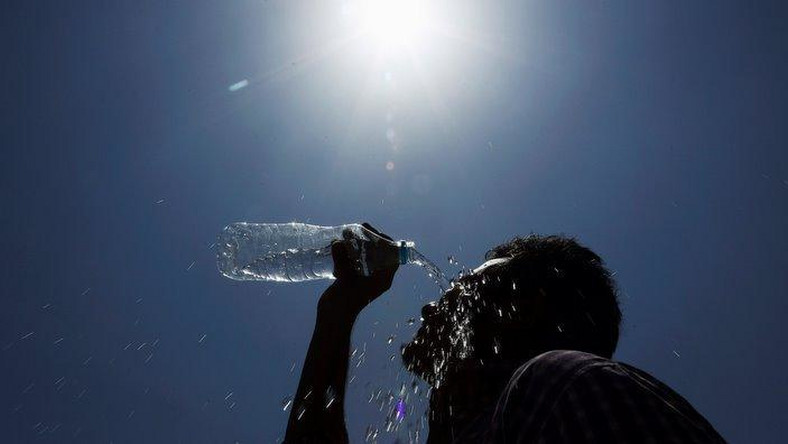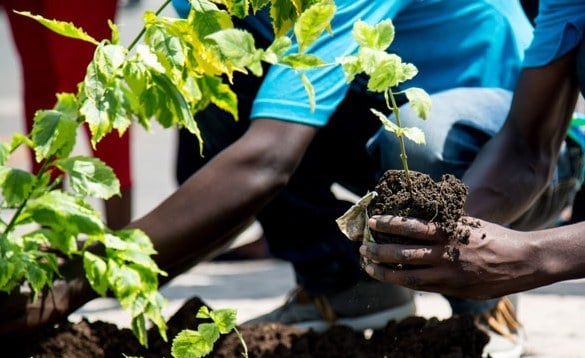Decades ago, one could easily say that the winter period was often characterised by cold and harmattan. But now, one can barely sleep due to the scorching weather. The rising heat levels across the country have raised concerns about health and general wellbeing.
With climate change causing a rise in temperatures globally—mainly engendered by greenhouse gas emissions from fossil fuels—widespread heatwaves seem to have become the norm. The cosiness of harmattan in many parts of Nigeria now feels hard to recall.
With the scorching weather biting harder, Lagos—the commercial hub of Nigeria—had its first rain on January 3, bringing a sigh of relief to residents. But this was short-lived.
The rains would usually not come until March, but things are changing, and the weather uncertainties have left many confused.
Advertisement
This, however, is not happening in Nigeria alone. Heatwaves hit different parts of the world in 2023, making it the hottest year on record, as seen in the report by the EU-funded Copernicus Climate Change Service (C3C), which shows that from January to October, average temperatures across the globe were 1.43°C, slightly close to the pre-industrial average of 1.5°C warning threshold.
Following these occurrences, TheCable offers some solutions to cope with the heat.
WHO IS AT RISK?
Advertisement

Not only is a heatwave extremely uncomfortable, it can affect everyone. But some people are more susceptible to illnesses during hot weather, especially older people, pregnant women, children, people of colour and those living with lung or heart diseases.
Research has shown that during hot weather, infants and children are prone to heat rashes, chicken pox, measles, and other infectious diseases. This is because heat breeds bacteria, especially since the body of a baby does not easily attune to the heat as much as adults do. It can also aggravate underlying neurological health conditions in children.
Similarly, a study revealed that there is higher death mortality in older people during extreme hot weather. Normally, the body cools itself through sweating and an increased flow of blood to the skin. With these processes jeopardised, older people tend to sweat less and have low blood circulation compared to younger adults.
Researchers say extreme heat can cause heatstroke, a situation when the body can no longer stabilise its temperature and can rise to 106°F or higher within 10 to 15 minutes.
Advertisement
SIGNS OF HEAT STROKE
Heat may become life-threatening if the signs are overlooked. Heat exhaustion is a moderate form of heat-related illness that can develop after several days of exposure to high temperatures and inadequate or unbalanced replacement of fluids.
Some of the signs to look out for include:
- Dry lips
- Excessive thirst
- Excessive sweating
- Dehydration
- Weakness
- Nausea
- Small blisters
- Heat rashes
- Mild fever
- Nosebleeds
- Rapid heartbeat and breathing
- Cramps, usually in the arms and legs
- Confusion
- Fainting
- No sweating (but the skin may be wet) is possible
- Very high body temperature for longer than 2 hours (40 °C and above)
HOW TO STAY SAFE DURING HEATWAVE
Advertisement

More often than not, we think heat has to be extreme (100°) before it can cause sickness, but all it needs is a temperature as high as 40°C. To stay safe in times like this, it is advisable to do the following:
Plan
Advertisement
Staying safe during heat waves requires adequate planning based on the weather. My geography teacher in secondary school would always tell us that he studies the weather before he picks his clothing for the day. Staying abreast of the weather forecast is a good way to plan for appropriate clothing in hot weather.
Nimet provides daily weather forecasts. Do not go outside during the hottest times of the day if you can avoid it. If you must step out under the sun, always apply sunscreen to protect your skin from ultraviolet rays; otherwise, arrange your activities earlier or later in the day when it is cooler.
Advertisement
Stay hydrated
Staying hydrated in hot weather is paramount to staying healthy. Drink at least three litres of water daily to hydrate yourself, as fluid leaves your body in the form of sweat and must be replaced to keep yourself healthy. An oral rehydration solution (ORS) can also be taken. To achieve this, dissolve six level teaspoons of sugar and 1/2 level teaspoon of salt in 1 litre of clean water if no premade ORS is available.
Advertisement
Breastfeed infants to rehydrate them. Breastfeeding mothers are encouraged to also drink water frequently to stay hydrated. Ensure you carry along a water bottle and a small towel, so you can hydrate and cool down by placing a wet towel on your neck.
Wear light clothing
Overdressing in the heat can make you hot faster; choose light or loose cotton clothes to help reduce heat rashes and absorb sweating. Cotton bed sheets are also recommended over non-breathable materials.
Taking immediate steps to cool the body of your infant is critical to avert heat-related illnesses. Infants cannot express themselves when they are hot; they resort to crying. It would be best if you understood when to reduce their clothing and give them water to hydrate them.
It is advisable not to place the fan directly in the face of the infant or immerse them in cold water; rather, wear lighter clothes during hot weather. Choosing appropriate clothing is essential to reducing heat. A dark cloth would increase the heat; hence, white, coloured and light clothing are advisable to reduce the heat.
Take cold baths
For adults, a cold bath in hot weather would help reduce blood flow to the skin and, in turn, simmer down body temperature. Do not keep track of how many times you shower during extremely hot days, especially when you are sweating more than normal. Not only does a cold bath keep the body cool, but it also keeps you fresh and reduces the smell.
In conclusion, with about 200 million people in Nigeria, we are highly dependent on fossil fuels, one of the major drivers of climate change. Coping with hot weather requires proactive measures to stay cool and healthy.
Add a comment






